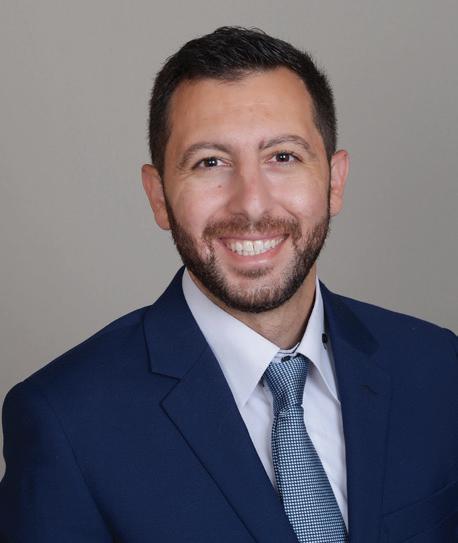
2 minute read
ROTIMI ODENEYE
University of Arizona
Rotimiodeneye@arizona.edu
Advertisement
Rotimi Odeneye was born in Lagos Nigeria but grew up in Phoenix Arizona before deciding to attend the University of Arizona in the Fall of 2020. Rotimi is a rising senior at the University of Arizona majoring in physiology and medical sciences and a double minor in Biochemistry and Emergency Medical Services. After graduation, Rotimi plans on taking a gap year to gain more experience in the medical field before ultimately applying to medical school. Rotimi’s interest are both surgery and internal medicine, with those juxtaposing specialties being in gastroenterology and orthopedic surgery. Rotimi is the President of Minority Association of Pre-Medical Students (MAPS) at the University of Arizona which aims to provide guidance for underrepresented students in medicine, works as an Emergency Medical Technician for the University of Arizona EMS, and works as a researcher in the department of Endocrinology in the College of Medicine at the University of Arizona. One of many medical aspirations that Rotimi has is to start up a free clinic to provide care to underserved populations and work towards reducing health disparities. One certain health disparity that is often overlooked is a potential language barrier a provider may have with their patient. Through volunteering at Clinica Amistad, Rotimi has been continually improving his Spanish with an overall goal to comfortably communicate with patients in both English and Spanish.
⊲ PROJECT
Differences of certain proteins post-differentiation in myotubes as compared to myoblast that govern insulin signaling
As part of the Langlais Lab in the College of Medicine, Rotimi’s research is focused on insulin-stimulated glucose uptake, specifically exploring the proteins involved in this process. Insulin signaling triggers glucose uptake by employing various proteins in the body. One such protein, called microtubule-associated protein CLASP2, has been identified as aiding in the translocation of GLUT-4 to the plasma membrane. GLUT-4 is responsible for glucose uptake in response to insulin. The objective of my thesis is to contribute to the identification of specific proteins that play a role in insulin-stimulated glucose uptake. I will investigate the contrasting roles of myotubes and myoblasts in this process, as myotubes are known to participate in insulin-stimulated glucose uptake while myoblasts do not. By comparing the protein profiles of myotubes and myoblasts, I hope to uncover the specific proteins responsible for insulin-stimulated glucose uptake in myotubes. This research will contribute to the understanding of the molecular mechanisms underlying glucose uptake and may have implications for the development of novel therapeutic interventions targeting insulin resistance and diabetes. Please let Rotimi know of any questions you may have and would also like to thank you for your time.
PAUL LANGLAIS PhD Associate Professor, Medicine Langlais@arizona.edu
I was born French Canadian, in Montreal to be exact, in 1975. My family moved to San Antonio in ‘78, so I grew up in the good old Texas public school system while spending my summers as a kid back in Quebec (which I still do when I can). I graduated from Texas Tech University in 1997 and realized that I liked Cell Biology, so I got lucky and ended up as a Research Assistant in an insulin signalling lab that Fall, all of which led me to a doctorate in biochemistry from the University of Texas Health Science Center at San Antonio. I met my boss, Larry Mandarino, PhD, when he interviewed me for grad school and we both left UTHSCSA for Arizona State University together in 2005, him as the Chair of Kinesiology (a department that later went bye-bye), me as a Post-Doctoral Fellow. Spent too long there before taking an Assistant Professor position at the Mayo Clinic in Scottsdale, Ariz., in 2012. Realized pretty quickly that Mayo held no future for me, so we all ended up at the University of Arizona College of Medicine – Tucson in the Fall of 2016, which turned out to be where we should have started in Arizona in the first place. Love the UA, so good to be back at a health science center and an institution that has a passion for basic biomedical research.





